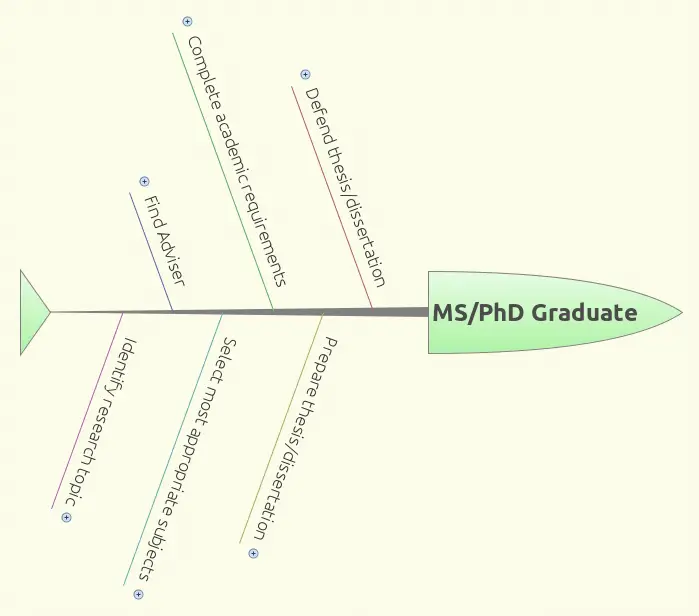Are you concerned that you may not be able to finish your graduate studies on time? Here are four tips to keep you on track.
How can you finish you MS or PhD on time or even before the prescribed period? As a graduate student, you may be quite concerned especially those who have a fixed number of years to finish their degree as part of the requirements of a grant or scholarship given them. This is possible, as long as you are determined to finish graduate studies as a desirable goal in your life. If others were able to do it, why can’t you?
Remember that the main reason many people pursue an advanced degree is such that they are able to do independent research. Aside from personal satisfaction of maximizing your potential as a student, you actually are preparing yourself for a life of research, of discovering things and ultimately contributing to the improvement of human life on this planet.
However, many MS and PhD degree holders just get their degree for the sake of getting that degree for promotion purposes, to get a permanent teaching position in a college or university or just plain vanity. These degrees are not designed to be taken for such purposes. Learning the art and skills of research requires responsible application of what has been learned.
So if you are inclined and is ready to take the challenge of finishing an MS or a PhD in your chosen field, here are four tips that will help you finish your course in due time and dispel of your worries. These are products of experience topped with a little imagination.
Four Tips on How to Finish Your MS or PhD on Time
1. Have a research topic ready early in your schooling
During the early part of my advanced schooling to finish my PhD, my professor noted that ideally, graduate students should already have their research topic ready upon entering the graduate school. This is important so that the student is able to select the appropriate subjects required to be able to effectively conduct research on the topic envisioned to be explored.
Find a good adviser and refer to your university’s or scholarship granting institutions’ research agenda on topics to be pursued if there are prescribed directions for the preparation of the thesis or dissertation. It is better to be aligned with such priorities especially if you expect funding assistance from these institutions.
2. Procrastinate up to a certain point
Many people say that procrastination is bad. But procrastination can be productive too — at a certain point. The point is, if you postpone doing things at a later date, there may be better options along the way that you could consider or integrate in your decision. So, it’s better to take action, within a time frame, because you gain more information as more time is allowed to pass. More information means better decisions. You can write your manuscript better with intensive editing. And there will be less time-consuming repetitions or revisions of your manuscript. You are then able to save time.
A haphazard work, even if quickly submitted, is never acceptable. If you are given a week to work on a project, maximize it. Chances are, you can do your best if you make use all of those time. But of course, there are exceptions. If your scholarship provider gives monetary incentive for you being able to finish early, then go for it. Hack away…
3. Use a fishbone planning guide
There are many free tools available now to facilitate planning activities within a time frame. One of my favorites is XMind, a free mind mapping software to help your ideas take form. It is freely downloadable while extended features can be enjoyed using the Pro version. Plan your time frame to finish your advanced degree using this tool.
I prepared a simple sample of a fish bone plan guide for graduate students below showing the critical points of graduate school work (see below). You can add more detail such as adding the time you will do the things required to finish your course and including details on what you will do under those major milestones in your study. You may print this and stick it on a wall to remind you always.

4. Play
You also need to de-stress once in a while. All work and no play can make Johnny a dull boy. Take time out with friends and relax. After all, what are you studying for. Is it not that you want to have a good life to enjoy? Little joys can compensate for a hectic work schedule. Taking too much stress can be bad for your health.
While stress is necessary to get things done, too much stress can have negative effects. Too much production of the stress hormone cortisol, according to Scott (2013), include the following negative effects:
- inability to think well or understand things
- problems in the thyroid which is responsible for calcium secretion (related to bone maintenance)
- higher than normal blood pressure that could lead to stroke
- weakened immune system that will allow cancer cells to proliferate
- more fat in your abdomen (!)
If you gain too much fat, you will have a host of other problems associated with it. That will be another source of stress.
Apply these tips and you will be well on your way to the path of academic success.
© 2013 November 22 P. A. Regoniel
